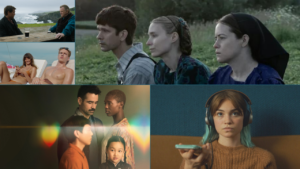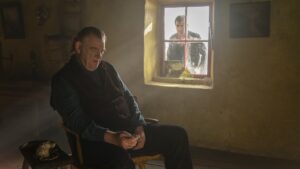“I’m Christmas Flint, human female.”

Troop Zero is the second feature from directing duo Bert & Bertie, the official “Directors to Watch” at the 2019 Palm Springs International Film Festival. Penned by Beasts of the Southern Wild screenwriter Lucy Alibar, Troop Zero depicts a young girl living in the rural town of Wiggly, Georgia in 1977 and dealing with societal challenges and the recent loss of her mother. Through this story, the film explores themes of femininity, bullying, death, grief, toxic masculinity, homophobia, friendship and the importance of family. It’s a lot for a movie to tackle, and it mostly does so successfully while maintaining an infectious positivity and featuring a number of memorable performances.
On that subject, the performances alone make this movie worth seeing. There’s something pure in the film’s lead, young actor McKenna Grace, who gives an unforgettable child performance as Christmas Flint, filled with giddy smiles in the face of adversity. Her father, known as “The Bossman,” is an eccentric southern lawyer based on the real-life father of the screenwriter. He’s played here magnificently by Jim Gaffigan, who gives an idiosyncratic and effective rendition of the character. The real heavy-hitters, though, are Viola Davis and Allison Janney, who spar as the leaders of rival Birdie Scout troops, the small groups of girls that represent the establishment of traditional gender roles in the culture of the small town. Viola Davis’s Miss Rayleen is a delight every second she’s on screen—Viola’s electric performance is matched by hair and costume design that make her the most iconic and memorable character of the film. And Janney is wonderful as the staunch and unwavering Miss Massey, whose sense of decorum and good ole Southern culture is rocked by Christmas and her friends. The rest of the major players in this story are children, played by Charlie Shotwell, Milan Ray, Johanna Colón, Bella Higginbotham, and Ashley Brooke, all of whom are thoroughly charming and give mostly above-average turns here.
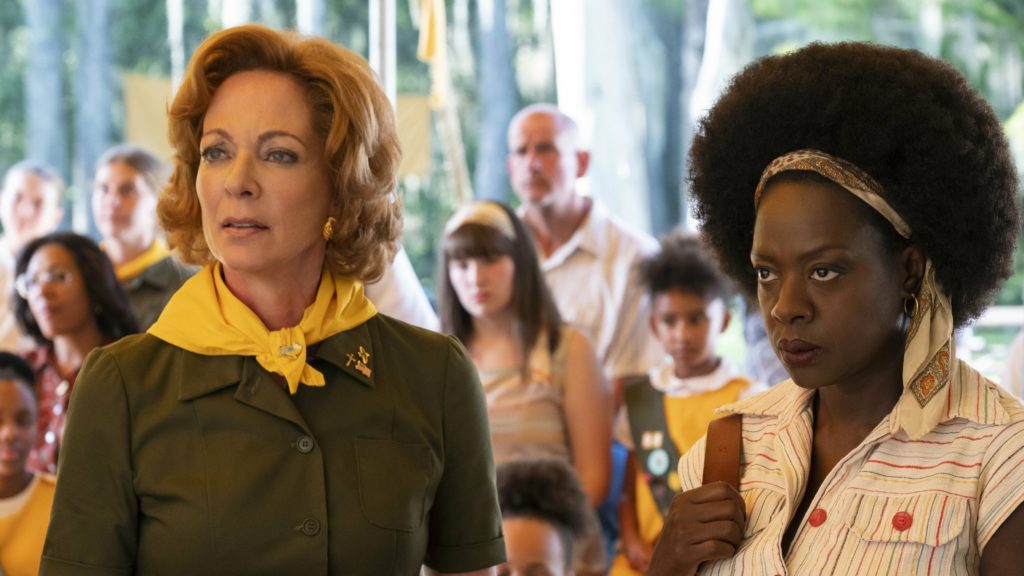
As the film opens, we meet Christmas Flint, self-declared “human female,” as she tries to reach out to life-forms from outer space. We learn that she is an outcast with an unusual family dynamic, and that she’s unsure who to believe about how the afterlife works. Her obsession with space is one of her defining characteristics, and its the thing that drives her to form a Birdie Troop scout of her own after learning that the winners of the statewide Birdie talent show will have a chance for their voices to be recorded and transmitted into space (a thing that really happened by the way).
What follows is a hilarious and touching journey filled with friendship and teamwork in defiance of the many people who underestimate Christmas and her troop—and for a number of reasons: because they’re women, because they are “lower class” (Christmas’s father perennially struggles to get paid), and because of their general weirdness (I say that in love). That weirdness certainly ends up as a point of celebration and pride for the girls, and for the film itself, which contains a fitting and beautiful tribute to David Bowie.
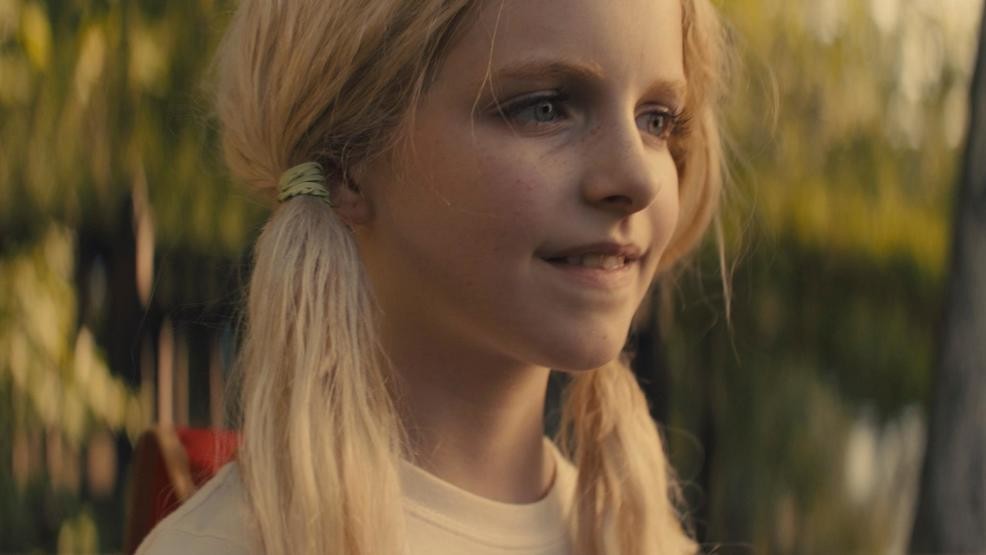
The 1977 setting is used to great effect here. Besides the love for NASA and Bowie mentioned above, there is an unexpectedly strong sense of place in this film. The small town feels lived-in and familiar (to this Southerner, at least). The first act sets up what life is like in Wiggly and the types of things children spend their time doing (back before the internet existed). Because this is set up so well, it’s believable that Christmas would spend so much time at the local library and it makes sense that the presence of a visiting NASA scientist would be the talk of the town. The beautifully lit visual style and the fantastic set design throughout the film really capture the feeling of this rural, pre-digital setting.
There’s a certain category of period film that this film fits nicely into: those that reimagine the past to some degree and push against what believably might have happened at the time. Would a traditional establishment like the Birdie Scouts really accept male scouts or male leaders? Would the hyper-masculine father of Christmas’s friend Joseph really switch to full acceptance of his effeminate son so suddenly? Could we really have a story set at this time that is almost devoid of racial politics? These types of historically questionable story decisions can be seen as poor writing, or as an unhealthy kind of wish fulfillment, but in fact they represent another important theme of this film: hope. Most modern viewers are cognizant enough of history to know that there would almost certainly be a strong racial element to the bullying in a town like Wiggly, or that Joseph’s character would likely be treated even worse for the way he pushes against gender norms, but that’s not what the film shows us. Instead, we see a somewhat romanticized version of southern culture, that picks and chooses the societal warts the film wants to deal with. By depicting Wiggly in this way, the filmmakers are focusing in on the story they want to tell to avoid distraction away from the major themes, and they are giving a little nudge to the viewer: Wouldn’t it be nice if racism didn’t exist? It’s a hopeful form of storytelling, and one that leads to a more life-affirming film.
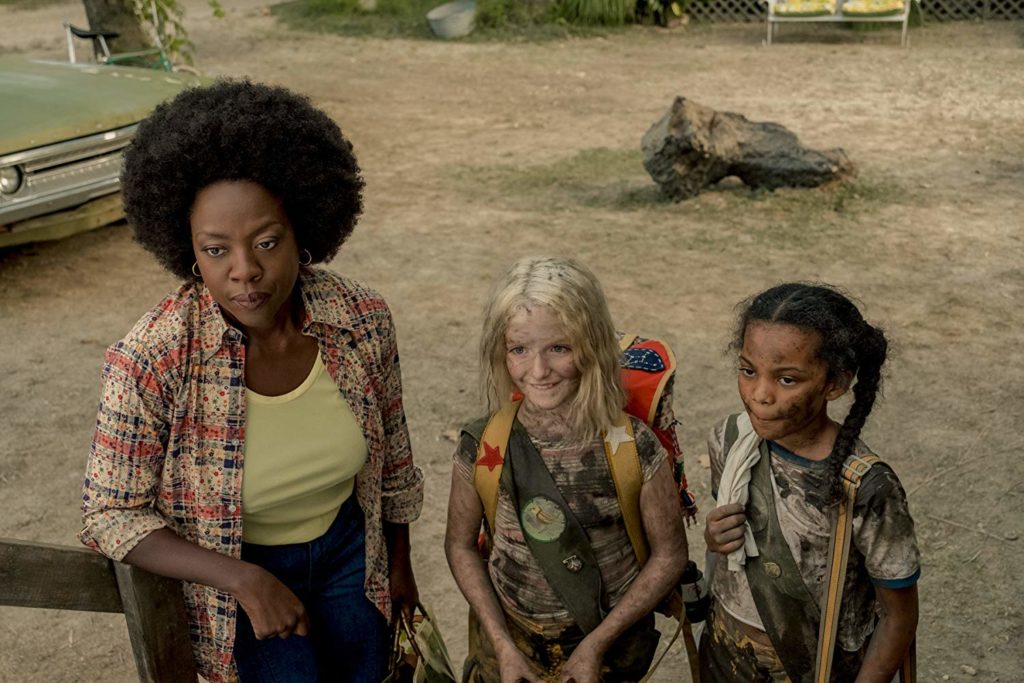
It remains to be seen how effective audiences will find the film’s ending, and it will likely have mixed results. Almost everything leading up to the third act is tight and works well, but the climactic talent show scene doesn’t fully connect emotionally, though there are several more effective moments surrounding it that help to pick up the slack. Ultimately, the film brings laughs at the same that it evokes a sense of hope and positivity, establishing Troop Zero as a strong force for good in our divided world.


